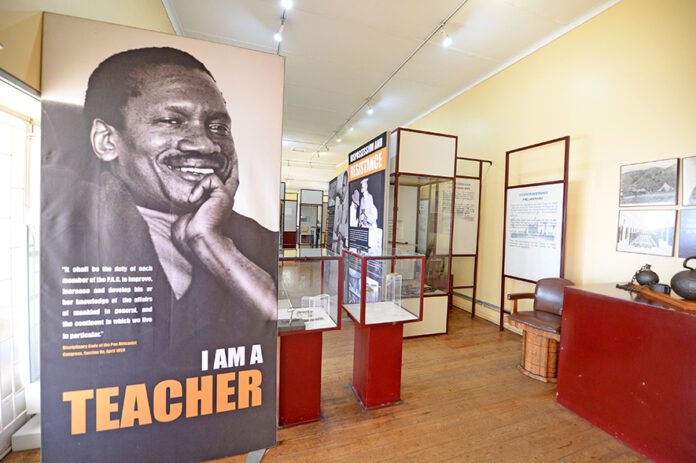Why have the country’s communities lost trust in the ANC-led government, a phenomenon that was foreign and unthinkable in the early 1990s when Nelson Mandela was released from imprisonment?
The question can be answered in many ways. But one way to answer the question is to surmise that his release meant something profound to his long-term suffering and oppressed black communities across the country: he was seen by many as a sign of hope that their suffering and oppression was about to come to an end.
What then does the saying, hope springs eternal in the human breast? A profound saying that reminds us as humans that hope does sustain us even when we are in places of darkness. We keep on hoping for a miracle even in the most unlikely circumstances of desperation and despondency.
The story of ancient communities who travelled for 40 years in the wilderness running away from the Pharaoh’s oppression ought to be instructive.
A struggle for justice and equity is a long-term project. Different leaders inspire hope in different ways. And South Africa at this moment of need requires the intervention of a prophet, a modern-day messiah.
Robert Mangaliso Sobukwe, the founding father and leader of the Pan Africanist Congress of Azania, instilled hope in his people by his “leadership of presence” among them, breaking bread and relating to them in the most basic ways, such as spending time with the working class at Park Station’s (Johannesburg station) concourse – playing a game of morabaraba, an equivalent of chess, with them.
If you can imagine a university professor finding time to be with “ordinary” working class communities, sharing stories of hope and commiserating with them, entering their world of poverty and suffering, this would be to understand Sobukwe’s style of leadership.
Never seeking to be self-effacing or self-absorbed in his importance, but deliberately seeking to immerse himself in the everyday human struggles of his people.
Sobukwe possessed that rare quality. Leading from the front but with the consent of his community. Not only a political giant, but also a church leader, a preacher of the good news in the Methodist Church. He was a people’s person, down to earth, ready to listen or to be schooled by others.
He was a literary giant willing to be enriched by others’ experiences. How lowly in status they may be, it did not matter, it did not bother him.
When the Sharpeville massacre broke out in 1960, and his people were mowed down by the apartheid gunfire, he was with them, acting in concert with them.
The nine years he spent on Robben Island and other apartheid prisons was for the sake of the down-trodden, whom he loved and paid an incarceration price for – for the sake of justice and equity.
I have digressed to make what I perceive to be an important point, and seek to show what true leadership ought to be. But the abiding question is: why are communities losing trust in the ANC and its leadership, the glorious movement of the people?
It boils down to one thing: insincere leadership is at the centre of it all.
Economist Duma Gqubule, writing in the Sunday Times last week, says: “It feels like the beginning of the end: the final unravelling of what was once a great political movement that has lost its way under the spell of dangerous neoliberal cult that will turn South Africa into an economic wasteland.”
The ship is in the deep seas, lost its way and battered by raging swells. The captain falters, steers the troubled vessel in the wrong direction.
South Africa is in a dangerous place.
Eskom’s failures are a marker of a failing country – a representation of an all-round failing leadership. The country’s infrastructure has been raided by criminals while our leadership looked on, wrung their hands as if they did not know that something sinister and illegal was happening within their sphere of governance.
Nothing works.
The potholes of shame are a great reminder that we have an inefficient and untrustworthy government.
The big speeches by the president count for nothing. We are on a path to Armageddon – the place where the final battle between good and evil will be fought.
- Mdhlela is a freelance journalist, an Anglican priest, ex-trade unionist and former editor of the SA Human Rights Commission publications
Follow @SundayWorldZA on Twitter and @sundayworldza on Instagram, or like our Facebook Page, Sunday World, by clicking here for the latest breaking news in South Africa. To Subscribe to Sunday World, click here





